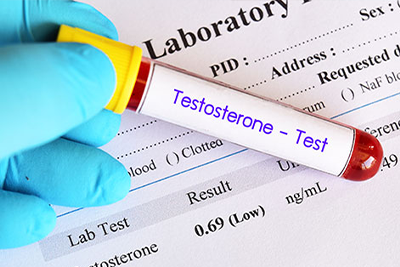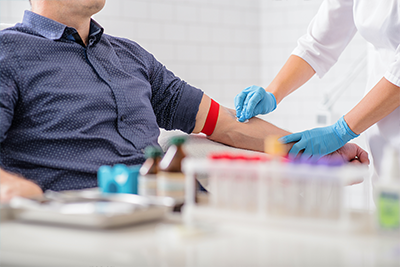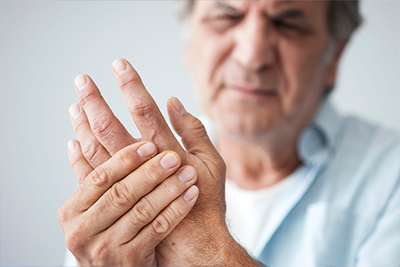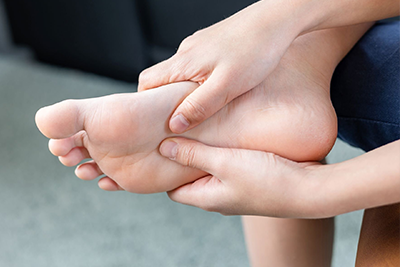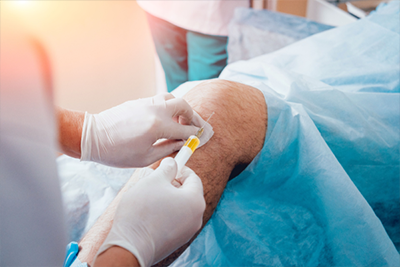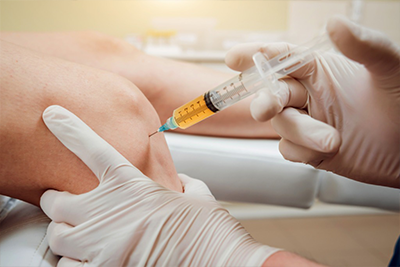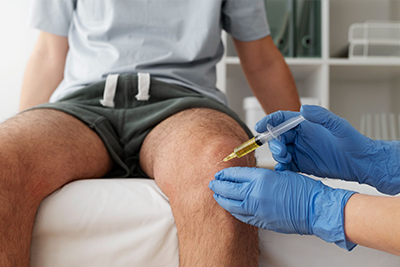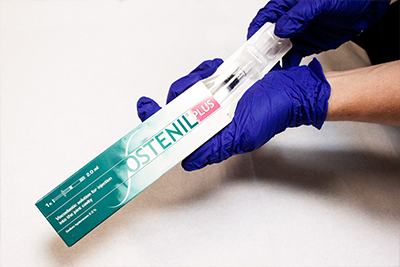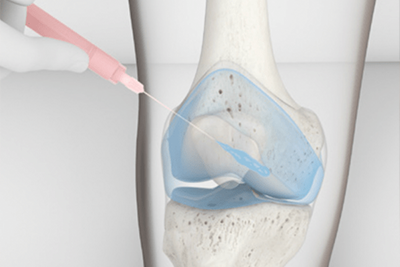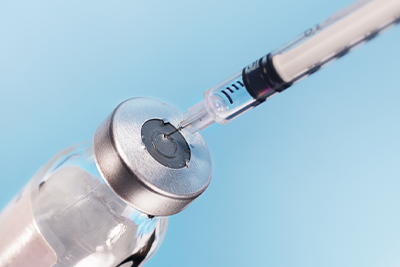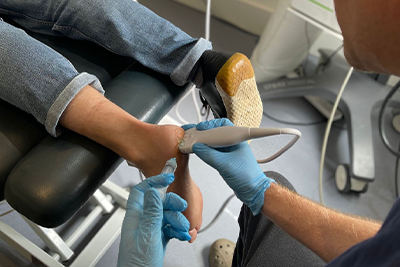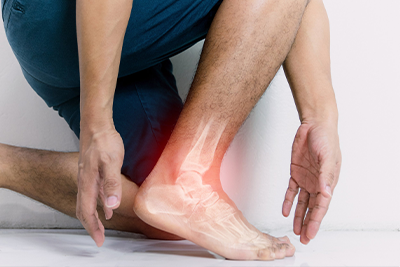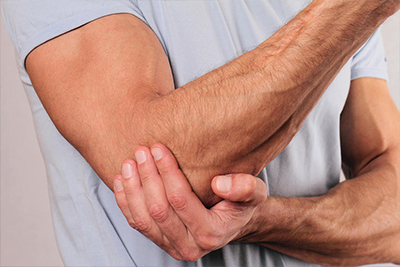Testosterone, the primary male sex hormone, plays a vital role in men’s health. It’s not only responsible for the development of male reproductive tissues and secondary sexual characteristics, but it also influences men’s overall well-being, including their muscle mass, bone density, mood, and energy levels. Men tend to feel more vigorous, confident, and motivated when testosterone levels are optimal.
However, the reality is that many men in the UK are grappling with low testosterone levels. According to NHS, testosterone levels naturally decline by 1% to 2% per year after age 40, and around two in every 100 men in the UK have low testosterone levels. This can lead to various symptoms, including fatigue, depression, low libido, and decreased muscle mass and strength.
While Testosterone Replacement Therapy (TRT) can help rectify low testosterone, it’s not always the first line of action for many men, and there can be side effects associated with its use. Hence, many men are exploring natural strategies to boost their testosterone levels. These methods primarily focus on lifestyle changes, such as diet, exercise, stress management, and sleep, that can help increase testosterone production and improve overall health.
The Importance of Balanced Testosterone Levels
Testosterone holds a significant impact on men’s physical and mental health. Physically, it aids in developing muscle mass, bone density, and body hair. It also plays a critical role in fat distribution, red blood cell production, and, most notably, sexual and reproductive health. Optimal testosterone levels are crucial for maintaining a healthy sex drive, erections, and sperm production.
Regarding mental health, testosterone is often linked to mood and cognitive function. Men with healthy testosterone levels tend to have better mental clarity, focus, and memory. They are also more likely to experience a positive mood and show lower levels of depression and anxiety.
However, when testosterone levels are not balanced—particularly low—it can lead to various health challenges. Low testosterone, medically known as hypogonadism, can cause numerous physical symptoms such as reduced muscle mass, increased body fat, and decreased bone density leading to osteoporosis and sexual issues like erectile dysfunction and low libido.
Moreover, the effects of testosterone imbalance aren’t merely physical. Low testosterone levels can also manifest in mental and emotional symptoms. These may include feelings of depression, irritability, low self-confidence, fatigue, or reduced motivation and concentration.
Link Between Lifestyle and Testosterone Levels
Testosterone levels in men aren’t set in stone. They can fluctuate significantly based on various factors, and lifestyle choices are crucial in these variations. Everything from what you eat, how much you sleep, and your level of physical activity to how you manage stress can impact your body’s ability to produce testosterone.
To break it down poor dietary habits, such as overconsumption of processed foods and sugars, can lead to weight gain and metabolic disorders. These conditions, in turn, can reduce testosterone levels. On the other hand, a diet rich in lean proteins, healthy fats, fruits, vegetables, and whole grains can support optimal testosterone production.
Physical activity, particularly resistance and high-intensity interval training, can stimulate testosterone production. Conversely, a sedentary lifestyle can contribute to obesity and other health conditions associated with low testosterone.
Stress and lack of sleep can also negatively impact your testosterone levels. Chronic stress leads to elevated hormone cortisol levels, which can inhibit testosterone production. Similarly, a lack of quality sleep can disrupt the natural rhythm of testosterone production, which typically peaks during REM sleep.
The benefits of optimising testosterone levels naturally through lifestyle changes are manifold. It helps improve the symptoms associated with low testosterone, such as fatigue, low libido, and decreased muscle mass, and it also contributes to better overall health. It can lead to improved mood and cognitive function, increased energy levels, better body composition, and enhanced sexual health.
Nutrition and Testosterone Levels
Your diet plays a substantial role in maintaining healthy testosterone levels. Certain nutrients are known to support testosterone production, while others may hamper it. Here, we break down some critical nutritional elements that can influence your testosterone levels.
1. Protein:
Protein not only aids in fat loss but can also help maintain healthy testosterone levels, particularly when combined with resistance training.
2. Healthy fats:
Diets rich in monounsaturated and omega-3 fats can boost testosterone levels. These fats can be found in foods like avocados, nuts, seeds and fatty fish like salmon and mackerel.
3. Vitamins and Minerals:
Certain vitamins and minerals are particularly beneficial for testosterone production. These include Vitamin D, B vitamins, Zinc, and Magnesium.
| Nutrient | Sources |
|---|---|
| Protein | Lean meats, poultry, fish, eggs, dairy, legumes, nuts and seeds |
| Healthy fats | Avocados, nuts, seeds, olives, fatty fish |
| Vitamin D | Fatty fish, fortified dairy products, egg yolks, sunlight |
| B Vitamins | Whole grains, meat, eggs, legumes, seeds and nuts, dark leafy vegetables |
| Zinc | Oysters, beef, chicken, tofu, pork, nuts, seeds, lentils, yoghurt, oatmeal |
| Magnesium | Green leafy vegetables, legumes, nuts, seeds, whole grains, yoghurt, avocados, bananas |
Aim to incorporate various nutrient-dense foods into your meals for a testosterone-boosting diet. It’s also essential to stay hydrated and limit intake of sugar, alcohol, and processed foods, which can impact testosterone levels negatively. Remember, it’s not about following a restrictive diet but about making sustainable changes towards a healthier, balanced eating pattern that supports your overall well-being and hormonal balance.
Exercise and its Impact on Testosterone Levels
Physical activity is a powerful tool for boosting testosterone levels naturally. It not only aids in maintaining a healthy body weight – essential for optimal testosterone production – but certain types of exercise can also directly stimulate the production of this vital hormone.
Not all exercises are equal regarding physical activity’s impact on testosterone levels. Research has shown that resistance and high-intensity interval training (HIIT) can be particularly effective for increasing testosterone production. This is likely due to the stress these types of workouts place on the body, which in response, increases hormone production.
1. Resistance Training:
Resistance exercises involve working against a force to build muscle strength and endurance. Examples include weightlifting and bodyweight exercises such as push-ups and squats. Studies have shown that resistance training can stimulate testosterone production during and after exercise.
2. High-Intensity Interval Training (HIIT):
HIIT involves short bursts of intense exercise followed by recovery periods. This type of workout has been found to increase testosterone levels, likely due to the metabolic stress it places on the body.
3. Aerobic Exercise:
While not as impactful as resistance training or HIIT, regular aerobic exercises like running, cycling, and swimming can help maintain healthy testosterone levels, especially when combined with other forms of exercise.
Here are some guidelines for a testosterone-boosting workout routine:
- Balance Your Routine: Incorporate a mix of resistance training, HIIT, and aerobic exercises into your routine to reap the maximum benefits.
- Consistency is Key: Regular exercise is crucial for maintaining and boosting testosterone levels, so aim to get active most days of the week.
- Intensity Matters: For resistance training and HIIT, work towards a high level of intensity to stimulate testosterone production. However, remember to listen to your body and avoid overtraining, which can lead to hormone imbalances.
- Include Rest and Recovery: Adequate rest and recovery time are just as important as the workouts themselves. Overtraining can increase cortisol levels, a hormone negatively impacting testosterone production.
Stress, Sleep, and Testosterone
Beyond diet and exercise, other lifestyle factors, namely stress and sleep, can significantly influence testosterone levels. Understanding the connection between these factors and testosterone production can help you implement strategies for better hormonal balance.
Stress and Testosterone:
Chronic stress can wreak havoc on your body’s hormone balance. When stressed, your body produces more cortisol, which can lower testosterone levels when chronically elevated. Stress management is, therefore, crucial for maintaining healthy testosterone levels. Techniques such as meditation, yoga, mindfulness, deep breathing exercises, or even simply taking time for hobbies and activities you enjoy can all help reduce stress levels.
Sleep and Testosterone:
Sleep is essential for numerous bodily functions, including the production of hormones. Testosterone levels rise during sleep and decrease with lack of it. Most testosterone is produced during REM sleep, often the most restorative part of the sleep cycle. If you’re not getting sufficient, high-quality sleep, your body may not have optimal testosterone levels.
Here are some tips for managing stress and improving sleep:
- Establish a Routine: Keeping a regular sleep schedule can help regulate your body’s internal clock and improve the quality of your sleep. Aim for 7-9 hours of sleep per night and try to go to bed and wake up at the same time every day.
- Create a Restful Environment: Make your bedroom a sleep-friendly zone. This can include maintaining a comfortable temperature, reducing noise and light, and investing in a comfortable mattress and pillows.
- Prioritise Relaxation Before Bed: Incorporate calming activities into your night time routine, such as reading a book, meditating, or taking a warm bath.
- Practice Stress Management Techniques: Find what stress-reducing activities work best for you and make them part of your daily routine. This could include mindfulness meditation, deep breathing exercises, yoga, or spending time outdoors.
By managing stress and prioritising good sleep, you can create an environment that promotes healthy testosterone production naturally.
Healthy Body Weight and Testosterone Levels
Maintaining a healthy body weight is another critical factor in ensuring optimal testosterone levels. There’s a reciprocal relationship between body weight and testosterone: being overweight or obese can lead to lower testosterone levels, while low testosterone can also contribute to weight gain.
The Link Between Body Weight and Testosterone:
Excess body fat, especially around the abdomen, can interfere with hormone balance. Fat cells contain an enzyme called aromatase, which converts testosterone into oestradiol, a form of oestrogen. This can result in lower testosterone levels and an imbalance in the testosterone-oestrogen ratio.
Lower testosterone can also lead to weight gain due to its role in regulating fat distribution and muscle mass. Therefore, keeping your weight within a healthy range can help maintain and potentially increase testosterone levels.
Here are some strategies for maintaining a healthy weight to optimise testosterone levels:
- Balanced Diet: As previously discussed, a balanced diet plays a vital role in weight management. Incorporate plenty of lean proteins, fruits, vegetables, and whole grains into your diet while limiting processed foods and those high in sugar and unhealthy fats.
- Regular Exercise: Regular physical activity is key to managing weight and boosting testosterone levels. Resistance, aerobic, and high-intensity interval training can help burn excess body fat while stimulating testosterone production.
- Stay Hydrated: Drinking enough water can support metabolism and help maintain a healthy body weight.
- Monitor Alcohol Consumption: While moderate alcohol consumption may not significantly impact testosterone levels, excessive drinking can lead to weight gain and lower testosterone. Limit your alcohol intake and choose drinks lower in sugar and calories.
Remember, it’s essential to approach weight loss healthily and sustainably. Quick fixes and crash diets can cause more harm than good, including potential negative impacts on your hormone balance. Instead, aim for steady, gradual weight loss through sustainable lifestyle changes.
Habits to Avoid for Healthy Testosterone Levels
While adopting positive lifestyle changes is essential for boosting testosterone levels, it’s equally important to identify and avoid habits that can negatively impact your testosterone production. Certain lifestyle factors can be detrimental to your hormone balance and overall health.
Habits That Can Negatively Impact Testosterone Levels:
1. Excessive Alcohol Consumption:
As mentioned, while moderate alcohol intake may not significantly impact testosterone levels, heavy and chronic drinking can lower and disrupt other hormones. It’s important to drink responsibly and in moderation. Aim to have several alcohol-free days each week and avoid binge drinking.
2. Smoking:
Nicotine and other chemicals in cigarettes can negatively affect testosterone production, along with causing a host of other health problems. Consider quitting; many resources are available, from smoking cessation programs to counselling services.
3. Recreational Drug Use:
Certain recreational drugs can negatively impact your body’s ability to produce testosterone.
4. Overeating and Unhealthy Eating:
Consuming excessive food, mainly processed and junk food, can contribute to weight gain and reduced testosterone levels. Avoid overeating and aim to consume a balanced diet full of fruits, vegetables, lean proteins, and whole grains.
5. Sedentary Lifestyle:
A lack of physical activity can lead to weight gain and lowered testosterone levels. Make physical activity a part of your daily routine. This can be as simple as walking, taking the stairs instead of the elevator, or participating in a sport you enjoy.
It’s important to remember that making lifestyle changes takes time, and taking small steps towards your overall goal is okay.
Monitoring Testosterone Levels
In addition to adopting healthier lifestyle habits, regular health check-ups are crucial in monitoring your testosterone levels, especially as you age. As men grow older, testosterone levels naturally decrease, sometimes leading to symptoms that impact their quality of life. Therefore, understanding your hormonal health through regular monitoring is essential in managing your well-being.
Regular health screenings can help detect any potential issues with your testosterone levels early on. This early detection can allow for prompt treatment, helping to prevent any long-term impacts on your health and well-being.
While adopting a healthier lifestyle can indeed support optimal testosterone levels, it’s also important to understand that severe testosterone deficiency may require medical intervention in the form of testosterone replacement therapy (TRT). These situations highlight the importance of regular check-ups, as these allow your healthcare provider to identify any significant changes in your hormonal balance that may require treatment.
If you’ve made lifestyle changes but are still experiencing symptoms of low testosterone, such as persistent fatigue, low libido, or mood changes, it might be time to seek medical help. Additionally, if you’re experiencing symptoms of excessively high testosterone, such as aggressive behaviour, sleep apnea, or acne, you should also seek medical advice.
Your healthcare provider can conduct blood tests to measure your testosterone levels and determine whether they’re within the normal range. They can advise you on any next steps, including further testing, lifestyle modifications, or potentially starting a TRT programme.
Related Articles
- The Link Between Testosterone and Body Composition
- Testosterone Replacement Therapy and Cardiovascular Health
- The Connection Between Low Testosterone and Impotence
- Understanding the Link Between Testosterone and Erectile Dysfunction
- The Potential of Testosterone Replacement Therapy


